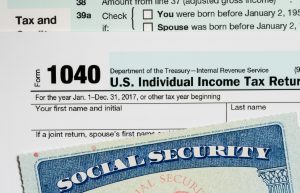When purchasing a used car, its background is worth knowing. What a car's past entails can range from accidents, flood damage, and odometer rollovers, to thefts. Consumers rely on sellers and third parties to provide proper information, but when information proves to be incorrect and incomplete, then? Having a knowledge of your legal remedy for car background information can save you from fraud and enable you to make an educated purchase decision.
The Right to Transparency: Vehicle History Reports
In many nations, a seller is legally obligated to disclose a car’s history to a buyer. In most instances, dealers have to comply, but private sellers in specific instances have to comply as well. Car history reports, accessible via Carfax, AutoCheck, and via a search via a car’s VIN, cover significant information regarding a car’s owners, its history of any collisions, and title record.
Before finalizing a purchase, it is a wise move to validate a car’s VIN (Vehicle Identification Number) via a reliable website. Visit vingurus.com check vin for accidents for a full report regarding a car and make sure information communicated to you via a seller is correct and reliable. It is an easy move that can save a lot of scams and future repair expenses for you.
The Importance of VIN Checks for Accident History
One of the most significant aspects of a car's background is its accident record. Any car with a history of numerous collisions can have weaknesses in its frame, hidden mechanical defects, and security issues that make it less reliable. By not getting a proper VIN search, buyers can unknowingly purchase a car with extreme past damage.
A VIN search will reveal information regarding any past collisions, including impact severity, deploying airbags, and an insurance company totalling out a car. Even when a car seems sound, frame damage not visible in a routine exterior inspection can generate safety issues, high maintenance, and a loss in resale value, even when a car seems sound.
Furthermore, accident records will impact insurance pricing. Cars with a record of significant repairs will then become high-risk, and therefore, have a high premium price tag. By checking a car’s record of accidents beforehand, buyers can save money on over-insuring, and even unnecessary repair work.
Conducting a proper search for a car's VIN helps buyers make an informed, safe purchase. It protects them from dealers who attempt to cover a car's history and comforts them knowing a car is in a safe condition.
Laws Protecting Buyers from Fraudulent Disclosures
Most countries have consumer protection laws designed to prevent fraud in the used car market. These laws vary by region but often include provisions such as:
- Odometer Fraud Protection: The U.S. Federal Odometer Act makes it illegal to tamper with or misrepresent a vehicle’s mileage. Buyers who discover an odometer rollback can take legal action against the seller.
- Title Washing Prevention: Some vehicles with salvage or flood-damaged titles are illegally rebranded to appear clean. Laws in the U.S. and other countries aim to track title changes across states to prevent this practice.
- Lemon Laws: While primarily applicable to new vehicles, some states extend lemon laws to used cars, requiring dealers to provide refunds or repairs if a vehicle has undisclosed defects.
- Implied and Express Warranties: If a seller specifically describes a car, such statements can become a legally binding express warranty. Even in cases when no warranty is included, buyers have recourse under warranties for unhidden important defects in instances when no warranty is extended.
Dealer vs. Private Seller Responsibilities
When purchasing a car at a dealership, you enjoy a broader range of legal protections when compared to buying a car privately. Dealers have to make truthful disclosures in general, and most areas have laws in position mandating that utilized cars pass minimum requirements for both operability and security.
Private sales, on the other hand, often follow an "as-is" policy, meaning the buyer assumes responsibility for any defects unless the seller has deliberately concealed known issues. Some states still require private sellers to disclose major problems, particularly those related to the title status.
What to Do If You’ve Been Misled
If you find out that a seller has misrepresented a vehicle’s history, you have legal recourse, including:
- Demanding a Refund or Repair: In cases where the law requires disclosure, you may be entitled to return the vehicle or receive compensation.
- Filing a Complaint: Government agencies like the Federal Trade Commission (FTC) or your local consumer protection office can investigate fraudulent sales.
- Taking Legal Action: If the deception has caused financial loss, you can sue the seller for fraud, breach of warranty, or misrepresentation.
- Reporting to Authorities: If the issue involves title fraud or odometer tampering, law enforcement agencies may pursue criminal charges against the seller.
Final Thoughts: Protect Yourself Before Buying
Understanding your legal position when buying a car is critical. By checking a sound VIN, becoming educated about relevant laws, and knowing your rights, fraud can be averted and a smarter purchase can be achieved. Do your background work beforehand and, in case of doubt, seek a legal advisor to safeguard your purchase.






















